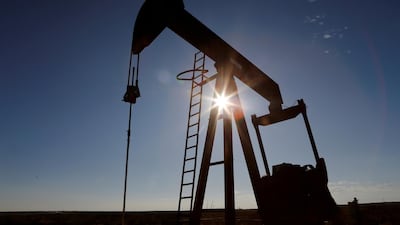Oil demand may not yet have peaked, despite international oil companies writing down the value of hydrocarbon assets amid a bearish environment for the industry, according to the executive director of the International Energy Agency.
The coronavirus pandemic, which led to widespread movement restrictions across the world has curtailed oil demand growth this year, leading to some observers arguing that peak demand had been reached at last year's average of 100 million barrels per day.
Peak demand refers to a scenario where consumption reaches an all-time high before first plateauing, and eventually declining.
"If the global oil demand goes back to 100m bpd, I wouldn't be surprised. If there's a strong economic recovery and no government policies to replace the oil use, we may well see that we go back to 100m bpd and even higher than that,” said Fatih Birol, the agency’s executive director.
"Many colleagues say – the CEOs of oil companies, many commentators, thought leaders – [that] we have seen the oil demand peak because our lifestyles are changing. I'm not very sure about that,” he added.
The Paris-headquartered agency said in its oil market report for June that global demand for crude is not expected to recover until 2022.
Demand for crude in 2020 is set to drop by an average of 8.1m bpd – the steepest decline in history. Demand is expected to recover by 5.7m bpd in 2021.
Oil prices fell nearly 70 per cent between January and April, which proved to be the low point in terms of demand as coronavirus restrictions brought mobility and factory activity to a standstill in major world economies.
West Texas Intermediate, the key US crude benchmark, collapsed below zero in the same month, which Mr Birol referred to as ‘Black April’, on storage capacity concerns.
Global energy demand is set to fall 6 per cent this year, nearly seven times the rate of decline following the 2008 global financial crisis, as the industry faces its biggest shock in 70 years as a result of the pandemic.
Brent was up 1.07 per cent, trading at $43.26 per barrel at 7.39pm UAE time, while WTI was up 0.52 per cent at $40.86 per barrel.
The IEA will convene leading government officials, ministers and energy industry executives at its annual Clean Energy Transitions Summit on Thursday. US energy secretary Dan Brouillette and UK secretary of state for business, energy and industrial strategy Alok Sharma are among the policy makers attending the virtual summit.


